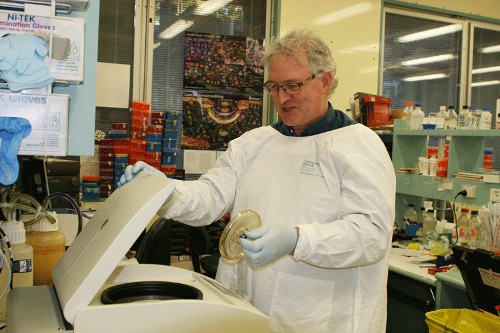Jul 15 2015
Researchers at the Centenary Institute in Sydney have uncovered new information about an enzyme called DPP9 that they believe to be a potential therapeutic target for limiting tumour growth and its ability to spread to and in the liver.

Mark Gorrell
Centenary’s researchers have shown that the DPP9 enzyme can regulate human liver cancer cell growth and movement. In addition, they have bred mice that lack DPP9 and shown that newborn mice need the enzyme to survive, highlighting its importance.
The results have shown that up to 100 molecules in the human body are probably de-activated by DPP9 and many of these play important roles in either immunity or in regulating energy use and storage. The power of this enzyme is so great that it needs to be regulated. The aim of the next phase of the research is to discover how the cells of the body achieve this naturally.
Associate Professor Mark Gorrell, who discovered DPP9, is currently undertaking an extensive study of the enzyme and its functionalities. He and his team are aiming to discover what key molecules are deactivated by DPP9 and therefore how to exploit the enzyme’s functionalities for clinical use. The research could lead to major breakthroughs in the treatment of cancer, as well as in understanding the immune system and growth of stem cells.
The team is following the same strategic approach that led to the discovery of the functions of a similar enzyme, DPP4, the most successful new diabetes drug target this century and the safest. By focusing on the mechanisms of the enzyme from a basic biochemistry perspective, they are developing an understanding of how it acts inside both normal cells and cancer cells.
The work to date has recently been published in the highly prestigious FEBS Journal, the leading journal of the Federation of European Biochemists.